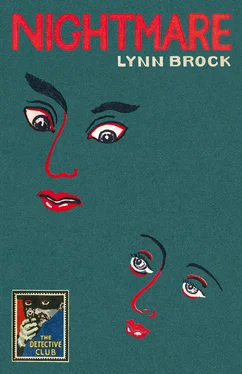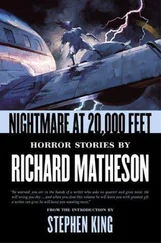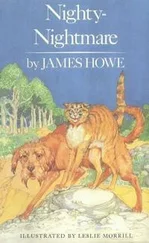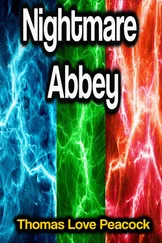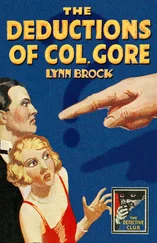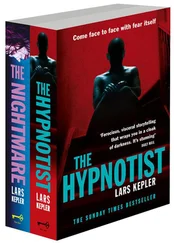To those who know Brock’s more traditional Colonel Gore detective novels, this ambitious book will come as a surprise. For all the others not so well acquainted with the author, it seems appropriate to start with a brief biographical outline.
Lynn Brock was a pen name used by Alexander Patrick McAllister, an Irish playwright and novelist born in Dublin in 1877. He also published using the pseudonyms Henry Alexander and Anthony P. Wharton. Alexander, or Alister as he was known in the family, was the eldest son of Patrick Frederick McAllister, accountant to the port and docks board in Dublin, and his wife Catherine (née Morgan). Educated at Clongowes Wood College, he later obtained an Honours Degree at the Royal University and was appointed chief clerk shortly after the inception of the National University of Ireland. At the outbreak of the First World War, McAllister enlisted in the military. On July 21, 1915 he went to France, where he served in the Motor Machine Gun Service of the Royal Artillery. Wounded twice, he returned to Dublin in 1918 and resumed his occupation as a clerk of the National University of Ireland. He married the same year. Once retired on a pension, McAllister and his wife Cicely (née Blagg) settled in London before later moving to Ferndown near Wimborne in Dorset where he lived many years and died at the age of 66 on April 6, 1943.
In Dorset, McAllister wrote his first detective novel at the age of 48 under the pseudonym Lynn Brock. This work, The Deductions of Colonel Gore (1926), became a huge success. Many of his later novels featuring his title hero-detective were often reprinted and widely translated. His complex plots and witty style won the praise of Dorothy L. Sayers, T.S. Eliot and S.S. Van Dine. Against this background, his publishers at Collins had perfectly justified high expectations for Nightmare (1932), which they advertised as ‘one of the most remarkable books we have ever published.’ Yet they would be disappointed. Nightmare never saw a second edition, and it was Brock’s first crime novel not to be published in the US.
Though not a success in his time, Nightmare is still a fascinating story and, from the perspective of literary history, his publishers’ statement seems to be not entirely wrong. Reading Nightmare not as another psychological crime novel with a missing twist at the end but rather as a tragedy of the human condition itself allows interpretation of the work as what may be the first philosophical crime novel. For this reason, it may be considered a milestone in crime fiction.
To explain this seemingly surprising hypothesis, it is necessary to take a closer look at McAllister’s career as a writer, which did not start with the first Colonel Gore mystery in 1926. McAllister first made a name for himself twenty years earlier when his play Irene Wycherly , written under the pseudonym Anthony P. Wharton, became a big success in London and on Broadway. In 1912/14, his celebrity reached its peak when At the Barn (later made into a silent movie called Two Weeks in 1922) was staged in theatres on both sides of the Atlantic. Many plays and premieres followed, the last of which was The O’Cuddy , staged shortly before his death. However, neither of these could revive his earlier fame.
Why is it then worth considering his career as a playwright? Because it shows his intellectual origin as a writer. Lynn Brock, one of the author’s alter egos, was much more akin to George Bernard Shaw, T.S. Eliot and Frank Wedekind than to Agatha Christie, Anthony Berkeley or Freeman Wills Crofts. As with many turn-of-the-century pre-Freudian artists and writers, McAllister was deeply influenced by the philosophy of Arthur Schopenhauer. In Schopenhauer’s principal work The World as Will and Representation (1818), the philosopher describes life as a dream motivated by an essence called ‘Will’—a mindless, aimless, non-rational urge at the foundation of everything including our instinctual drives. The world as ‘Will’ is an endless striving and blind impulse, devoid of knowledge, lawless and meaningless. There is no God, and there is neither good nor evil. The ‘Will’ causes a world of permanent struggle where each individual strives against every other individual in a ‘war of all against all’, and where daily life is suffering, a constant pendular movement between pain and boredom with misfortune in general as a rule. This world-as-representation is a nightmare for all individuals, staged by the ‘Will’ for his eternal self-involved entertainment.
It is this nihilistic and gloomy worldview that motivates Lynn Brock’s Nightmare . Bookended by the appearance of a gramophone playing music—the only art that, according to Schopenhauer, shows the metaphysical ‘Will’ itself—the story follows the tragic misadventures of Simon Whalley and a handful of other characters trapped in an ominous house community revealing the ‘war of all against all’ and individual suffering in a nutshell.
Though Whalley’s life bears some resemblance to McAllister’s biography as a playwright, the whole tale has a surreal quality. There are no distinguishable villains or heroes. All of the characters are driven by the same sinister force towards an abyss of despair, gently oscillating between daydreams of fresh starts and the inevitable nightmare-like realization of the impossibility of those intentions. All of the protagonists are doomed but Whalley, worst-hit by the cruelty of some of his neighbours, succumbs to the pressure and prepares himself for murderous revenge. The following events are predictable, and the ending is as gloomy as the setting of the story against the backdrop of the Great Depression.
What makes Nightmare truly genuine is its subtext. The plot not only unveils the motive of the crimes committed, it leads one to the metaphysical core of the human condition itself. Throughout the book the characters develop an uncanny consciousness of their nightmare-like existence in an endlessly striving and meaningless universe. They feel that ‘Life itself is a silly faked-up old story’, a ‘bitter, merciless struggle’. They anticipate that ‘everything that has been is for ever’ and one ‘might have to start all over again at the end of it’. Such half-hidden maxims of Schopenhauer’s philosophy make Lynn Brock’s Nightmare an extraordinary and notable contribution to the Golden Age of crime and detective fiction, and it is to be hoped that this new edition might help to bring it up for discussion again.
ROB REEF
March 2017
IT was a sullen, sultry afternoon in early June—the unsatisfactory June of 1931—and after lunch Mr Harvey Knayle, who hoped to play tennis at the Edwarde-Lewins’ after tea, had retired to his bedroom for a nap. At half-past three he still lay there on his bed, slumbering soundly in the twilight of down-drawn blinds, clothed, beneath a gay dressing-gown, in gay pyjamas. For Harvey Knayle had reached an age at which an afternoon nap was a thing to be taken seriously and with all possible ease and comfort.
He was a fresh-coloured, clean-shaven, spare little man of fifty precisely, with thinning, carefully-groomed blonde hair, a high forehead, a longish aquilinish nose, good-humouredly sardonic lips, and a cleft chin. The combined effect of these details was agreeable, restful, and unobtrusively distinguished, as became the personal appearance of anyone bearing the name which was his.
Читать дальше
